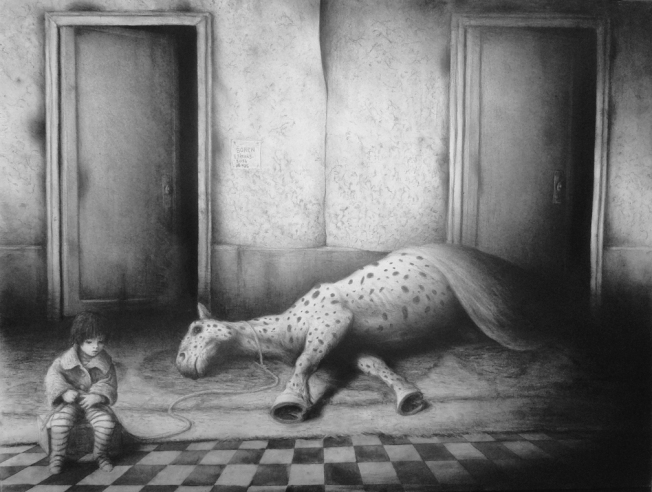“…in all corners of the earth there are waiting ones sitting who hardly know to what extent they are waiting, and still less that they wait in vain. Occasionally, too, the waking call comes too late – the chance which gives “permission” to take action – when their best youth, and strength for action have been used up in sitting still; and how many a one, just as he “sprang up,” has found with horror that his limbs are benumbed and his spirits are now too heavy! “It is too late,” he has said to himself – and has become distrustful and henceforth for ever useless. – In the domain of genius, may not the “Raphael without hands” (taking the expression in its widest sense) perhaps not be the exception, but the rule? Perhaps genius is by no means so rare: but rather the five hundred hands which it requires in order to tyrannize over “the right time” – in order to take chance by the forelock!” – Nietzsche, Beyond Good and Evil. pp.137-138.
“The narrator is one of the best examples of a typical Aickman character: a sad, marginal-failure. To fail more spectacularly would actually confer a degree of success that doesn’t fit with the Aickman view of humanity.” – cw67q, poster at Vault of Evil boards.
Theodor Adorno and Max Horkheimer, in a particularly fierce aphorism of their Dialectic of Enlightment latter section – a treatise about rationality booby traps – saw some similarities between the haruspex in a pagan altar and the professor working on the dissecting table of an ultra-modern laboratory. For the two German philosophers both the priest and the scientist represents the Man and the Humanity devoted to the ecstatic observation of Nature in bloody agony, slowly tasting the perverse pleasure that such activity can provide. Of course, it is not the suffering of Nature as a totality, since the focus is on the potential and preferred victims, seen as the weakest links in the terrible chains of natural and social logic – captured animals, the natural sources with easy access, peaceful and isolated communities, segregated human groups, women – chosen for sacrifice. When faced with all the blood, viscera, and the torment of open wounds, the owners of knowledge (scientific or ritualistic) seek signs, evidence, portents. So this brief aphorism, titled “Man and beast”, presents the thesis, central to Adorno and Horkheimer’s philosophy, that the brutal and fearful exploitation of Nature reflects the brutalization of man from the remotest origin, the most distant historical sign and myth. The devastated Nature and the Humanity enslaved reflected each other…” – Bibliophage, Cannibals of West Papua.

Victor Soren. “Avec Nortre Cheval Mort.”
And thirteen we were, crying like pissants into our soup and breaking wind for the poor bastard done in and out of his joys in life, and all his roads stopped up with dust. – Djuna Barnes.
I wake early one morning and slip into my parents’ bedroom. My mother lies on her side, curled tight as a seashell. My father is on his back, his mouth wide open. I notice that my father is not snoring, and my father always snores. In fact, he is not even breathing. His mouth is open, his eyes are closed, and he is perfectly still, perfectly quiet. My mother too is still, quiet, not breathing. The early morning light coming through the curtains tints them in a yellowish sheen, as if some soft golden powder has been spread over the room, the bed, the sleeping bodies.
I wonder how it is that my parents are not breathing. I watch them closely, trying to solve the mystery. I see that my father’s skin is turning gray, my mother’s skin too. My parents are becoming stone, gradually transforming from skin into stone before my eyes.
The added weight of the stone crushes against the mattress they sleep on. My mother’s stone body is sinking into the mattress. The white mattress rises up along her sides, folds over the top of her still hands and feet, over her torso and head. She disappears into the mattress, leaving only a crease. Then my father sinks from sight, the mattress creeping over him like the closing petals of a flower. His arms, his legs, his torso–all disappear into the trough of the mattress, until only his face remains.
Then the mattress folds over his face and he is gone.” – Thomas Wiloch, Early Morning.
Wow, Thomas Wiloch! Haven’t thought about him in years. Some lovely dark flash fiction/prose poems.
That’s a beautiful Victor Soren piece.
Bill
Thanks Bill. Yeah, Wiloch seems to have been left behind a little. Hard not to wonder if he would be having a renaissance of his own right now if he were still around, like his friend Ligotti. I’ve not read much, but what I have has been pretty strong.